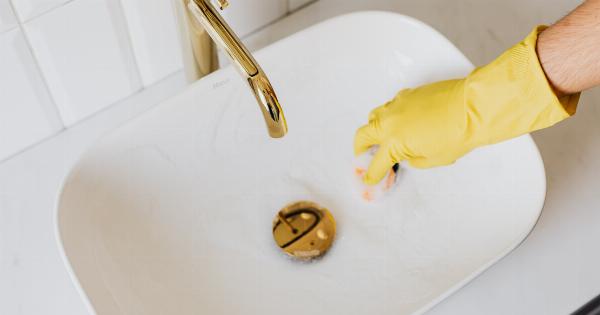Dish sponges are essential kitchen tools that most of us use daily to clean our dishes. These sponges are effective in removing grease and food residue from cookware, and they also keep our dishes clean and sparkly.
However, many people do not replace their sponges regularly, which can lead to bacterial buildup and unpleasant odors. To keep your dishes clean and free from bacteria, it is essential to know when to replace your dish sponge.
Why Should You Replace Your Dish Sponge?
There are several reasons why you should replace your dish sponge frequently:.
- Bacterial Buildup: Dish sponges provide an ideal breeding ground for bacteria, including E. coli and salmonella. If you do not clean and disinfect your sponge regularly, these harmful bacteria can accumulate on the surface and cause food poisoning.
- Odors: Over time, dish sponges can become smelly due to the accumulation of food residue and bacteria. These odors can transfer to your dishes and make them smell unpleasant.
- Effective Cleaning: As dish sponges get old and worn out, they become less effective in removing food residue and grease from your cookware.
When Should You Replace Your Dish Sponge?
The frequency of replacing your dish sponge depends on how frequently you use it, the type of sponge, and how well you maintain it. As a general rule of thumb, you should replace your sponge every four to six weeks.
However, if you notice any of the following signs, it is time to replace your sponge:.
- The sponge smells unpleasant, even after washing and disinfecting it
- The sponge is torn or falling apart
- The sponge feels slimy or sticky to the touch
- The sponge has become discolored or stained
Tips for Maintaining Your Dish Sponge
To extend the lifespan of your sponge and keep it clean and hygienic, follow these tips:.
- Wash your sponge frequently: Rinse your sponge thoroughly with hot water after each use to remove any food residue. Every day, wash your sponge with dish soap and hot water and then rinse with hot water to remove soap residue.
- Disinfect your sponge: To kill bacteria, soak your sponge in a mixture of water and bleach or vinegar. Alternatively, you can microwave a wet sponge for one minute on high to kill bacteria.
- Store your sponge properly: After washing and disinfecting your sponge, wring it out thoroughly and store it in a dry place. Do not leave it in the sink or on a damp surface, as this can promote bacterial growth.
- Consider using a different sponge for different tasks: If you use your dish sponge to clean other surfaces, such as countertops, consider using a separate sponge for this task to prevent cross-contamination.
Conclusion
To keep your dishes clean and free from bacteria, it is essential to replace your dish sponge regularly. By following the tips above, you can extend the lifespan of your sponge and keep it clean and hygienic.
Remember to look out for signs that your sponge needs replacing and to dispose of it properly when it is no longer effective.





























